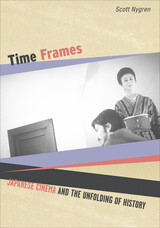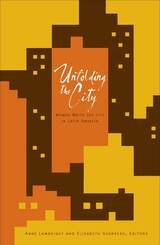3 books about Unfolding

Philosophy of Spinoza
Unfolding the Latent Process of His Reasoning
Harry Austryn Wolfson
Harvard University Press
The object of this work is to apply the historico-critical method to Spinoza’s Ethics. Starting with the assumption that the Ethics is primarily a criticism of the fundamental problems of mediaeval philosophy, the work proceeds to analyze these problems, to set forth their salient features, to construct hypothetically the arguments of which the criticism is made up, and to show how these arguments and criticism underlie the statements which we have before us in the Ethics. The Ethics thus emerges as a logically constructed work, throughout which there is order and sequence and continuity; propositions apparently disconnected group themselves into unified and coherent chapters; words, phrases, and passages, apparently meaningless or commonplace, assume meaning and significance; and the philosophy of Spinoza, as a systematic whole and in all its fullness of detail, appears in a new light and in its true historical setting. Within the framework of this study of the Ethics are woven interpretations of relevant passages from the other writings of Spinoza.
[more]

Time Frames
Japanese Cinema and the Unfolding of History
Scott Nygren
University of Minnesota Press, 2007
Until 1951, when Kurosawa’s Rashomon won the Golden Lion award for best film at the Venice Film Festival, Japanese cinema was isolated from world distribution and the international discourse on film. After this historic event, however, Japanese cinema could no longer be ignored.In Time Frames, Scott Nygren explores how Japanese film criticism and history has been written both within and beyond Japan, before and after Rashomon. He takes up the central question of which, and whose, Japan do critics and historians mean when reviewing the country’s cinema—an issue complicated by assumptions about cultural purity, Japan’s appropriation of Western ideas and technologies, and the very existence of a West and an Orientalist non-West.Deftly moving backward and forward from the pivotal 1951 festival, Nygren traces the invention of Japanese film history as a disciplinary mode of knowledge. His analysis includes such topics as the reconfiguration of prewar films in light of postwar recognition, the application of psychoanalytic theory to Japanese art and culture, and the intersection of kanji and cinema. He considers the historical inscription of 1950s Japan as “the golden age of the humanist film,” the identification of a Japanese New Wave and the implications of categorizing Japanese film through analogy to other national cinemas. Bringing the discussion to Japan’s reception of postmodernism, Nygren looks at the emergence of video art and anime and the end of Japanese film history as a meaningful concept in the rise of the Internet and globalization.Nygren highlights the creative exchange among North American, European, and Asian media, places Japanese film at the center of this discourse, and, ultimately, reveals its global role as a cultural medium, capable of transforming theory.Scott Nygren is associate professor of film and media studies at the University of Florida.
[more]

Unfolding the City
Women Write the City in Latin America
Anne Lambright
University of Minnesota Press, 2007
The city is not only built of towers of steel and glass; it is a product of culture. It plays an especially important role in Latin America, where urban areas hold a near-monopoly on resources and are home to an expanding population. The essays in this collection assert that women’s views of the city are unique and revealing. For the first time, Unfolding the City addresses issues of gender and the urban in literature—particularly lesser-known works of literature—written by Latin American women from Mexico City, Santiago, and Buenos Aires. The contributors propose new mappings of urban space; interpret race and class dynamics; and describe Latin American urban centers in the context of globalization.Contributors: Debra A. Castillo, Cornell U; Sandra Messinger Cypess, U of Maryland; Guillermo Irizarry, U of Massachusetts, Amherst; Naomi Lindstrom, U of Texas, Austin; Jacqueline Loss, U of Connecticut; Dorothy E. Mosby, Mount Holyoke College; Angel Rivera, Worcester Polytechnic Institute; Lidia Santos, Yale U; Marcy Schwartz, Rutgers U; Daniel Noemi Voionmaa, U of Michigan; Gareth Williams, U of Michigan.Anne Lambright is associate professor of modern languages and literature at Trinity College in Hartford, Connecticut. Elisabeth Guerrero is associate professor of Spanish at Bucknell University.
[more]
READERS
Browse our collection.
PUBLISHERS
See BiblioVault's publisher services.
STUDENT SERVICES
Files for college accessibility offices.
UChicago Accessibility Resources
home | accessibility | search | about | contact us
BiblioVault ® 2001 - 2024
The University of Chicago Press









